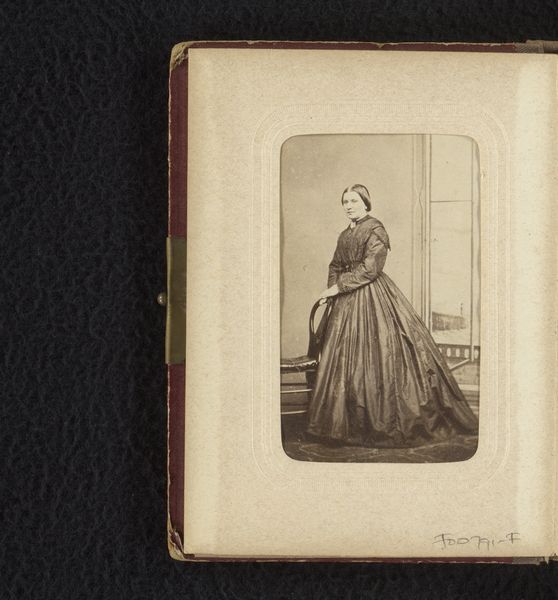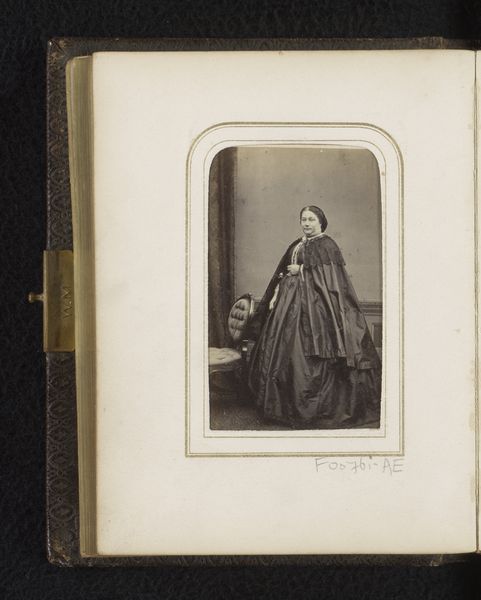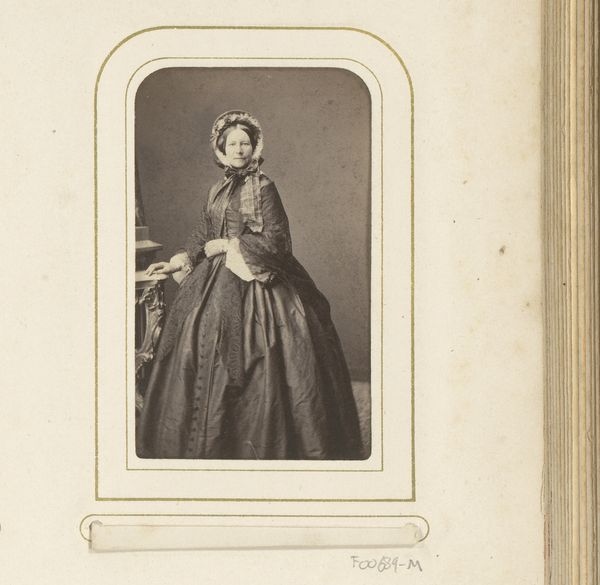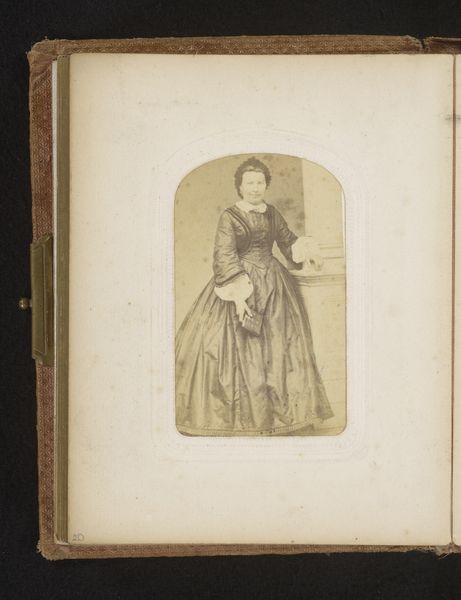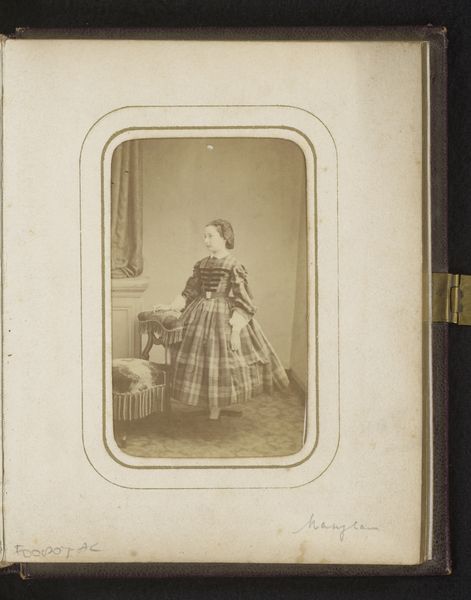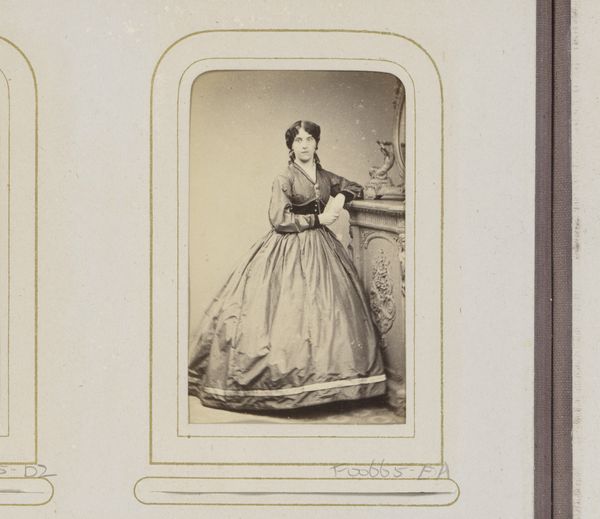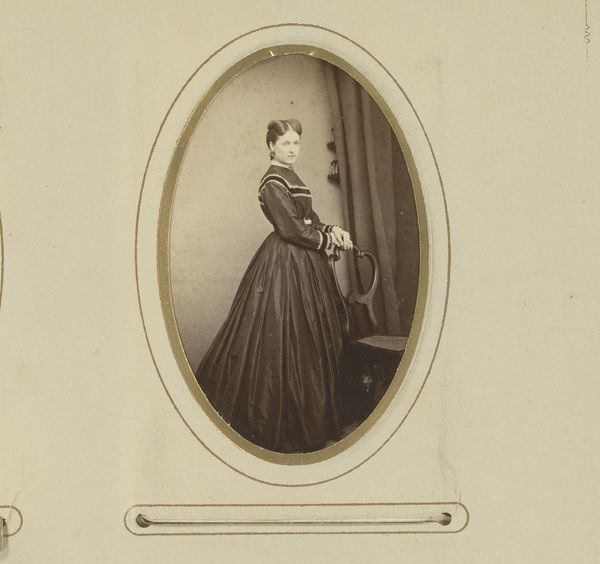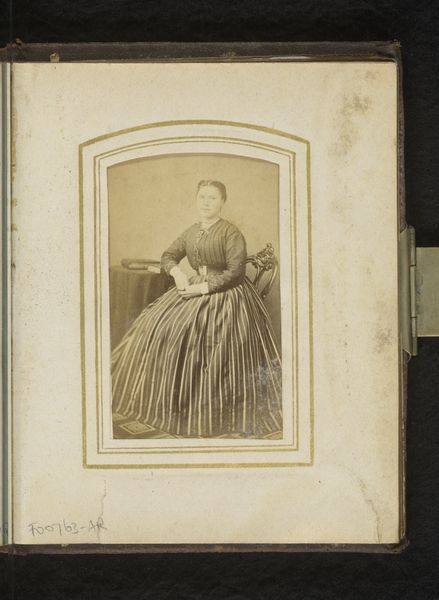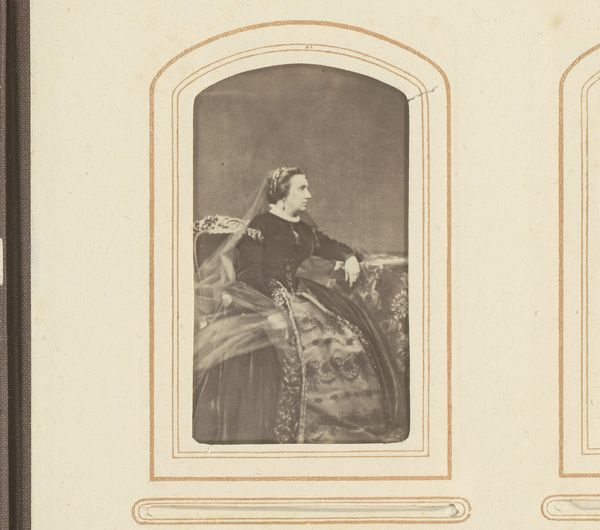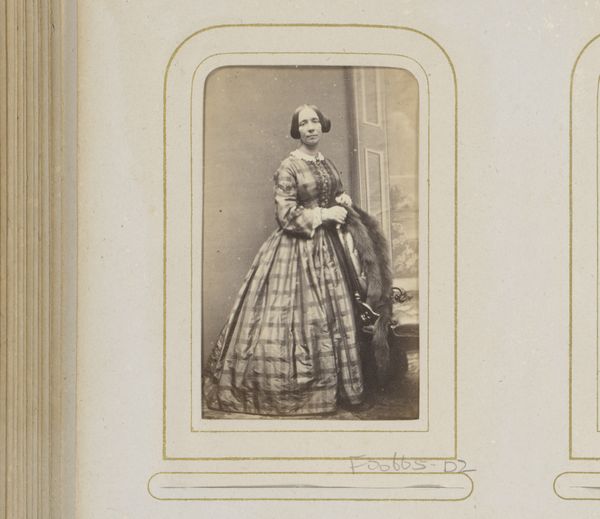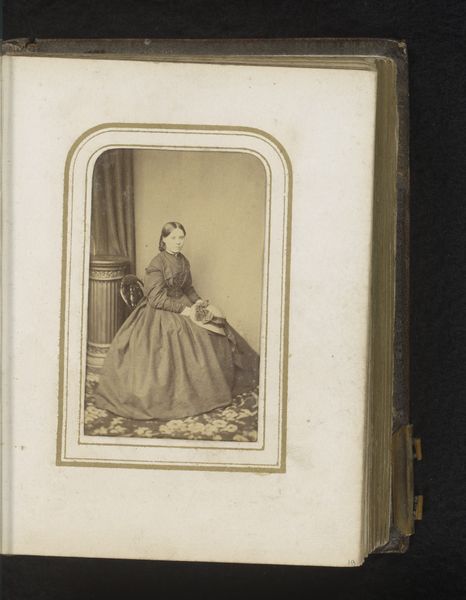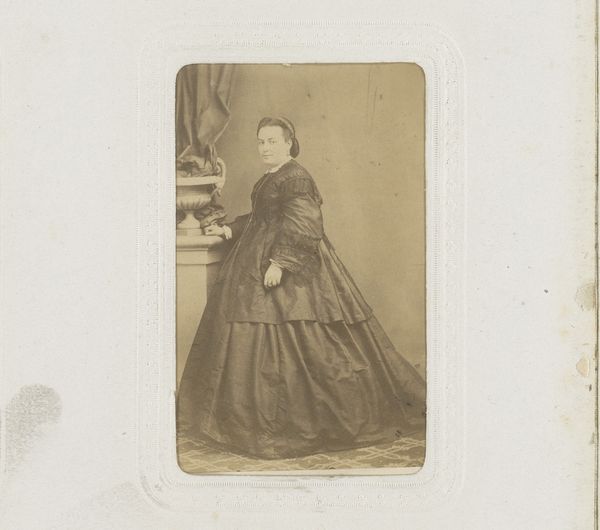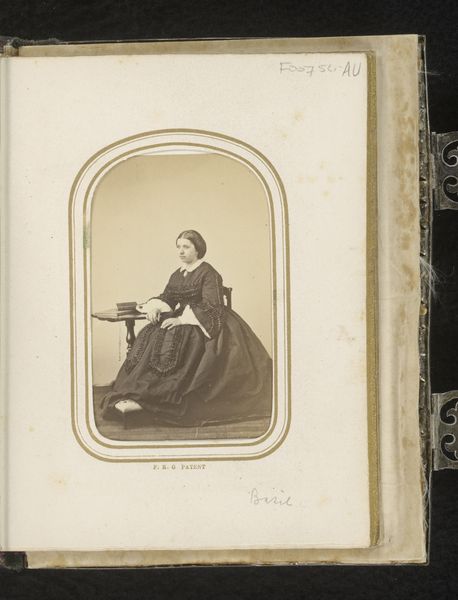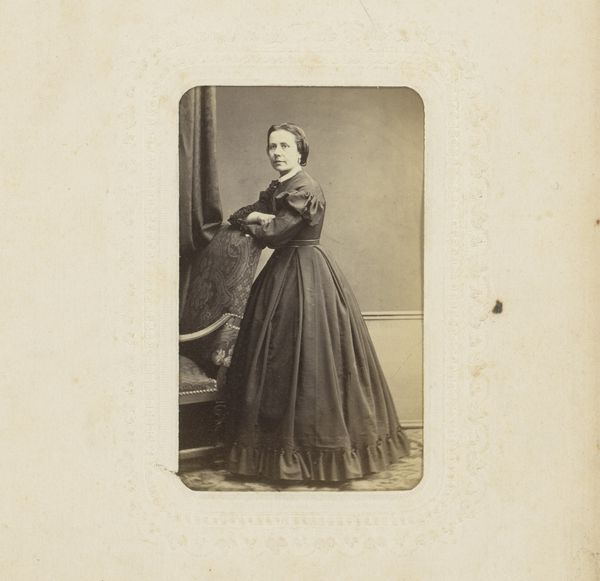
photography, albumen-print
#
portrait
#
photography
#
19th century
#
watercolor
#
albumen-print
#
historical font
Dimensions: height 83 mm, width 52 mm
Copyright: Rijks Museum: Open Domain
This portrait of Alexandra, Princess of Wales, involves the interplay of photographic chemistry and paper, likely dating back to the late 19th century. Early photography like this was a complex alchemical process. Light-sensitive emulsions, often silver-based, were carefully applied to paper or glass. The resulting image, a product of light and shadow, required precision. Here, the monochrome palette emphasizes the textures and patterns of the Princess's gown. Consider the labor involved: from the photographer meticulously preparing the chemicals, to the sitter, perfectly still for the duration of the exposure, to the factory workers who mass-produced the photographic paper, and the seamstresses who produced Alexandra's elaborate gown. Photography democratized portraiture, a domain previously exclusive to the wealthy who could afford painting commissions. By understanding the means of production and the social context in which they are made, we gain a greater appreciation for photography's importance in our history.
Comments
No comments
Be the first to comment and join the conversation on the ultimate creative platform.
